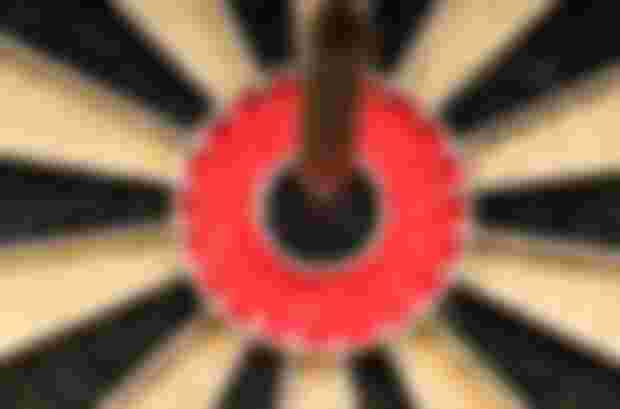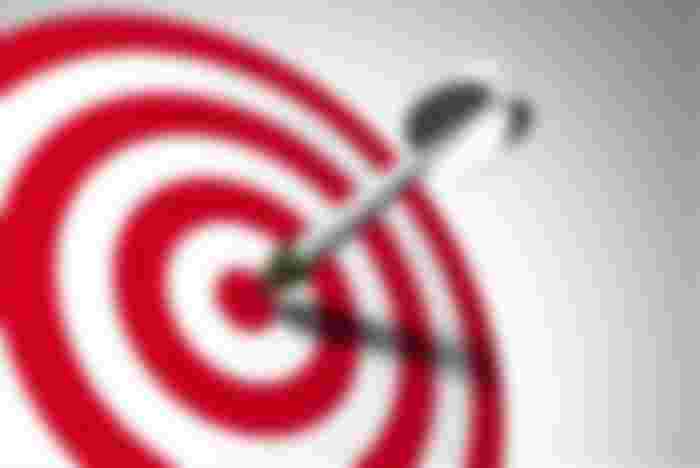They used to say that you need to be good at anything that you have to do it for ten thousand hours, which is about seven years!
But a respected gentleman named Josh Kaufman didn't like it, and he felt that something was wrong, do I really have to spend seven years learning programming or a specific language to be able to? I do not want to be a scientist or a professor .. all I want is to be able to play, for example, swim or speak German easily!
Surely there is an easier way to enjoy exercising something faster!
What does it take for someone to acquire a skill?
From here, Mr. Josh's theory was launched, “How can you learn anything in less than twenty hours ?! '
Our lives are very crowded, and humans usually tend to stay unscathed in their safe places after they have learned what they learned and become brilliant. One of them does not imagine being a complete beginner in something again .. to fail again, and for people to mock it. No, let's watch TV!
As for Syed Josh, in less than 12 months he was able to learn:

Programming, his own company that he created is now entirely based on the software that he wrote himself!
Yoga: He can now practice it at home alone, and it has become more focused, strong and flexible.
Surfing.
Harp Play: Now he can play many famous songs.
Go: It is the hardest and oldest strategy game in the world, much more complicated than chess
Filming and editing movies.
Mr. Josh says that he learned all these things without any kind of negligence or negligence in his right and his work time, and in caring for his family. He was busy writing his new book, taking care of his two-year-old daughter, helping his wife make her company succeed, and giving three training courses!
How?
Just by learning how to quickly and easily acquire any skill, if you can know how to do it well, you can go from being absolutely not aware of anything to being really good at it.
Before acquiring a skill: What exactly do you want to learn ?!

Do you want to learn a new language? Playing a musical instrument? Writing in a specific programming language? the design? Draw? handwork? To start your own business? To develop your work skills?
Learn how to acquire a new skill, and you will be able to learn all these things mentioned above and more!
You will be able to learn skills that will help you increase your income, win the respect of others, and create opportunities for you. You will be able to learn things that will enhance your life!
Three barriers preventing you from learning something new!
So, why do people usually fail to learn something new?
1) Most people are not committed to learning something specific:
Someone simply says, “Well, it'd be so cool if I ever learned Russian! “Without bringing pens and papers to formulate an actionable strategic plan for the matter, he does not even know why he wants to learn this particular language!
He is only satisfied with wishing for the matter, hoping that one day he will free himself from his hasty obligations and embark on them.
2) Learning something new is scary!
When you start to learn something, there are huge gaps and gaps in your understanding of it, you become very conscious of what you do not know, and you are unable to know where to start!
This ignorance breeds fear and suspicion, can I really do this? .. And they both force your mind to panic, so how will your mind behave if you panic? Give up!
3) Learning new skills is often frustrating and frustrating.
Let's say you pushed the doubt aside and went on to learn and it's time to practice, now ... do you know what will happen? You'll be totally stuck! You will feel so stupid!
So what is the solution, because someone does not like to look stupid here? You will stop practicing and convince yourself that it wasn't that important in the first place, you really didn't want to do it .. so let's go back to watching TV!
Not defining what you want to learn, fear and frustration are universal barriers that prevent you from acquiring any skill, and they can be expected so you can prepare yourself.
The introduction of complex and usual preservation methods will delay the acquisition process, not expedite it, it is an easy process .. an organized way to spend your time and effort doing things that help you build this skill, and avoid the things that disrupt it.
You don't have to be an expert!
When learning a new skill, you don't have to worry about being an expert or a master in it!
Let's say that you are not good at drawing, but you want to learn it .. Here is the worst thing you can do about it: to compare your current level and your initial ability in drawing, for example, Picasso or Michelangelo!
And let's also say that you want to learn French, so you decide to watch a French movie or listen to a conversation between Frenchmen, or at least listen to a young man who is fluent in speaking it .. Then you think: I will never be able to be this good!
And it gets worse if you have heard of this theory of spending 10,000 hours to learn something, meaning that you want approximately 4 hours a day for seven years to learn something! Who has time for this?
Why do you insert yourself into this disturbing comparison that will only leave you frustrated?
Simply put, you often don't need to be an expert, take it easy!
When you decide to learn something, you are not competing with others, you are only competing with your previous ability in not being able to do something, so any improvement is a success!
Once you take it for granted that skill acquisition is not a competition, raising your skills and abilities becomes a much easier job!
Here are the most important techniques you need to learn any skill, personal or professional:
1) Set a clear goal for the level you want to reach:
Setting the level you want to reach makes it easy for you to decide exactly what you want to practice.
It sounds simple, but the most common mistake people fail is that they never decide exactly what they want, so it is impossible to know how to do it!

Determine exactly what you want. The more detailed the matter, the easier it will be to reach it, instead of relying on an unclear goal such as “Learn German! For example, you define “learn how to have an acquaintance conversation with my German friend”, so you have made the goal clearer and realized exactly what you should be practicing!
You also have to focus your efforts on developing one skill. You need time, effort, patience, and a lot of practice in order to build a clear and coherent skill!
If you distribute your effort on more than one skill, then you likely will not succeed in any of them.
Choosing one skill to work on is difficult, especially if you are passionate ... But there is a simple way to make decision-making easier: Make a list of all the skills you want to learn.
When you find yourself ready to learn something, take your list and ask yourself: “If I were to learn only half of what is on this list, what would I keep? '
Divide your list in two halves, when it ends, divide it into two new halves, and so on until you have one skill left ... and this is the chosen one.
Remember: you never decide that you will never learn these skills, you just won't learn all of them now.
2) Deconstruct the skill!

One of the most important things with which skills are treated (such as learning languages and playing) are that they are actually bundles of a set of smaller skills that combine to form the greater skill.
As the skill is broken down into smaller pieces, the practice gets less scary.
Like everything in life, skills follow the pareto law or the 80/20 rule
Breaking the skill into smaller pieces is the first step in figuring out which of these skills are the most important and therefore you can start from there.
Let's take learning languages as an example, when you speak a language, you do not do one thing. Rather, you practice mental imaging in memorizing, correct pronunciation and using facial expressions and body movements, arranging sentences in your mind, linking hearing and pronunciation..and each of them separately. It is a different skill, so it is best for you to practice each one separately.
For example, memorize a number of words by forming a mental picture of them, or utter many sentences using the muscles of your face and body, improve the skills of hearing ... and so on.
Most of the skills follow the same pattern: a few sub-skills are the most important, and the rest are complementary and underused, and contribute very little to the bottom line.
So make sure to practice the most important sub-skills.
3) Use the 20/80 method to easily discover the most important sub-skills

Find your own learning resources (courses, books, passages ...) and do not try to finish them all at once, one by one, and with that the most important methods and ideas will appear, and you will be able to identify the most important sub-skills and practice them with confidence.
Do a careful search, but look at it .. You have to search carefully to find the most important skills that will start with, and avoid ineffectiveness in simply starting without a clear strategy and plan.
4) Get rid of your archenemy!
The more you strive to sit down and initiate it, the less you practice.
Everything that gets in the way of a focused and active exercise is an enemy that you have to get rid of.
You should never make it difficult for yourself to practice it, and keep your environment stimulating and prepared at all times. For example, if you are learning to play the flute..Do not make it farther in the house than where you are accustomed to sitting, keep it within your reach and around you always, which will always remind you about it and make reaching it and engaging yourself in the practice easy.
One of Josh’s clients used to say:
“I imagine that in the future I will be a stupid, lazy man making foolish decisions, so I am preparing my environment to prevent this from happening! '
Likewise, all that distracts you while exercising is an enemy, turn off the phone, turn off your computer or social media sites and your e-mail, sit in a calm and tidy place.
And start.
5) Make a prior commitment before you start!
Commitment ... the password that takes your life to another new level

Now do you plan to rearrange your schedule to spend twenty hours practicing this skill, at a rate of 45 minutes a day for one month?
Bring your calendar and sit down. Determine when can you do this exercise in your day? What will you give up and hold off until you finish this matter?
And if you don't have enough time to do this and don't intend to free up any time for it, then this skill is clearly not a priority for you.
It is always best to do what is your priority, and make the right decision for you at this stage so that you do not feel guilty later.
And if you really decide to start learning something for 20 hours, making a prior commitment to providing specific time and making the effort to learn it makes the learning process more effective.
You have to make a commitment in front of yourself or people before you start practicing!
Why? Because if you are only tempted, you quickly withdraw if you encounter even the slightest of difficulties.
Remember that the first hours of practice will be very awful, most of us are just idiots when they do anything for the first time, so if you don't have a strong drive to persist or outright commitment, your frustration will be very fast.
Making a prior commitment will completely change your inner dialogue. You will find yourself saying “Well, I will only do this for twenty hours, if I fail, it will be a failure that lasts only 20 hours and that's okay because I expected it .. I will continue; Because I want this skill and it is important to me. ”
After twenty hours, you will find yourself in a suitable position and level to allow you to make a judgment about it: Is it valuable to me? Did I get what I hoped for from learning it? Will I find what I want later if I continue?
Some skills are short-lived, such as cooking, doing something manually, or learning to play certain music. And there are skills to benefit from them after a lot of hard and serious practice, such as programming or design, for example.
The more you increase your practice, the more you will go on your path to professionalism.
It's all worthless unless you do it!
Maybe someone is saying now: Well okay, tell me something I've never heard before! .. All these words are beautiful and we hear them every minute.

Let me tell you two things
First : “You should be doing these things! “The skill will not bring itself to you because you have read about it. Skills require practice, and practice requires effort..so, no effort .. no skill!
Second, simple things work.
This strategy is very simple, you will learn interesting and useful things in a short time .. No need for us in any complexity!
You will be amazed at how good you will be at it if you finally decide to just sit down and practice.
You will be able to do things that you would not have been able to do before.
If you really want to work, simple methods will yield massive results.
Finally, watch a lecture by Josh Kaufmann on Ted, summarizing the most important things in this article for you:






